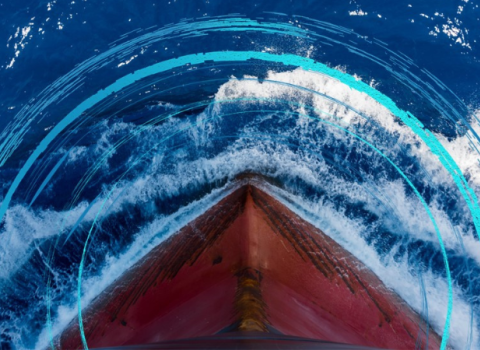Commission promises a new EU Ocean Observation Initiative, supported by an Ocean Research and Innovation Strategy

Photo credits: Guillaume Bassem / Unsplash
A framework intended to unify EU policies on ocean health, the blue economy and coastal communities has been adopted by the European Commission. The Ocean Pact comes with a €1-billion budget, a third of which is “earmarked” for research and scientific projects, according to a Commission spokesperson.
The pact, announced on June 11 during the United Nations Ocean Conference in Nice, will fund 57 projects ranging from promoting sustainable fishing in Tanzania to regenerating mangrove forests in Guyana. It is expected to streamline coordination between maritime stakeholders and synchronise ocean-related reporting obligations to help member states navigate existing legislation.
By 2027, the Commission will propose an Ocean Act to help achieve the targets of the pact. A high-level board will guide its implementation and a dashboard track its progress.
The main scientific project under the pact is a new EU Ocean Observation Initiative, underpinned by an Ocean Research and Innovation Strategy. The initiative will feed into the creation of a European digital twin of the ocean that will “maintain the EU as a global ocean leader in ocean science, technology and data,” the document reads.
The Ocean Research and Innovation Strategy will build on existing activities under Horizon Europe, in particular the mission to restore oceans and waters by 2030. “It will ensure a source-to-sea approach, and aim at improving the current governance by overcoming the fragmentation of EU research and innovation initiatives, including their research infrastructures,” the Commission says. “This will fill the gap between research and innovation through financing for development and deployment of new knowledge and solutions.”
In all, around a third of the €1 billion budget will be “earmarked” for research and scientific projects, a spokesperson said, “recognising the crucial role that knowledge plays in ocean conservation.”
There will also be benefits for technology and innovation in the pact’s competitiveness activities, with renewable ocean energy and underwater robotics both singled out as priorities. Then there are commitments to reinforce maritime border security and surveillance by investing in a drone fleet and making more use of artificial intelligence and advanced sensors.
Related articles
- EU climate policy ignores latest science on forests, researchers say
- Research data cable links bolstered following undersea attacks
Meanwhile, the pact will put €40 million into a Global Ocean programme to support partner countries in ratifying the agreement on Biodiversity Beyond National Jurisdiction. This sets goals for conserving and sustainably managing marine biodiversity in parts of the ocean that go beyond the jurisdictional boundaries of any single nation.
The International Union for Conservation of Nature will lead the first component of this new programme by providing “technical assistance” with a €20-million budget allocated between June 2025 and May 2030, explained Aurélie Spadone, senior programme officer for the union’s ocean team.
Among other activities, this will support biological diversity studies at the subregional level in areas beyond national jurisdiction, she added.
Welcome attention
The pact has received a broad welcome from the marine research community.
“By shining more light on the ocean, the Ocean Pact will benefit the ocean itself and us as citizens, but also us as researchers,” said Artur Palacz at the Institute of Oceanology of the Polish Academy of Sciences.
He expects the Commission to expand on its current pledges to fund ocean research, with a substantial increase in financing to foster public-private partnerships. “More funding calls enabling closer interaction between research institutes and start-ups and scale-ups would help better exploit the high-impact innovative products to be delivered by BioEcoOcean and other Horizon Europe projects,” he added.
Lina Mtwana Nordlund, associate professor at Uppsala University and BioEcoOcean project coordinator, thinks that the pact “responds well to the research community’s long-standing call for stronger EU vision and leadership when it comes to ocean governance and ocean economy development.”
However, stricter regulations on data sharing are needed, she said, as well as the creation of a federated and interoperable data management system for maximising EU ocean observing.





 A unique international forum for public research organisations and companies to connect their external engagement with strategic interests around their R&D system.
A unique international forum for public research organisations and companies to connect their external engagement with strategic interests around their R&D system.